I. 5− Chloro−1.3− cylopentadience undergoes SN−1 solbolysis in the persence of Ag' ion slowly, even though chlorine is doubly allylic, and allylic halides normally ionise reasily. Expalin.
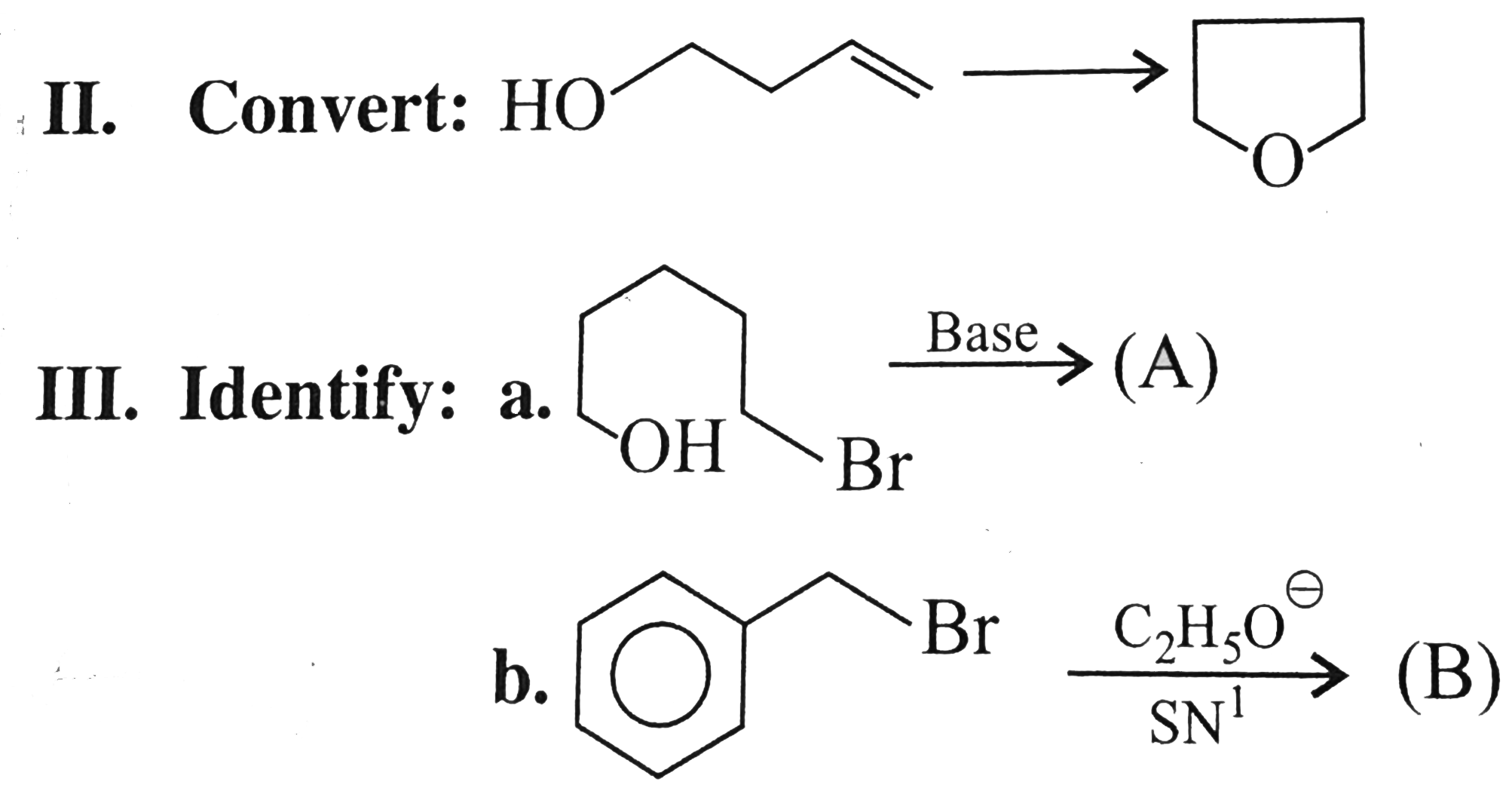
IV. 1− Choloro −2− (dimethylamino) propane (A) after standing for several weeks in a sealed contaniner changes to 2− chloro −1− (dimethylamino) propane (B). Explain.
V. Give the major major products of the following elimination reactions:
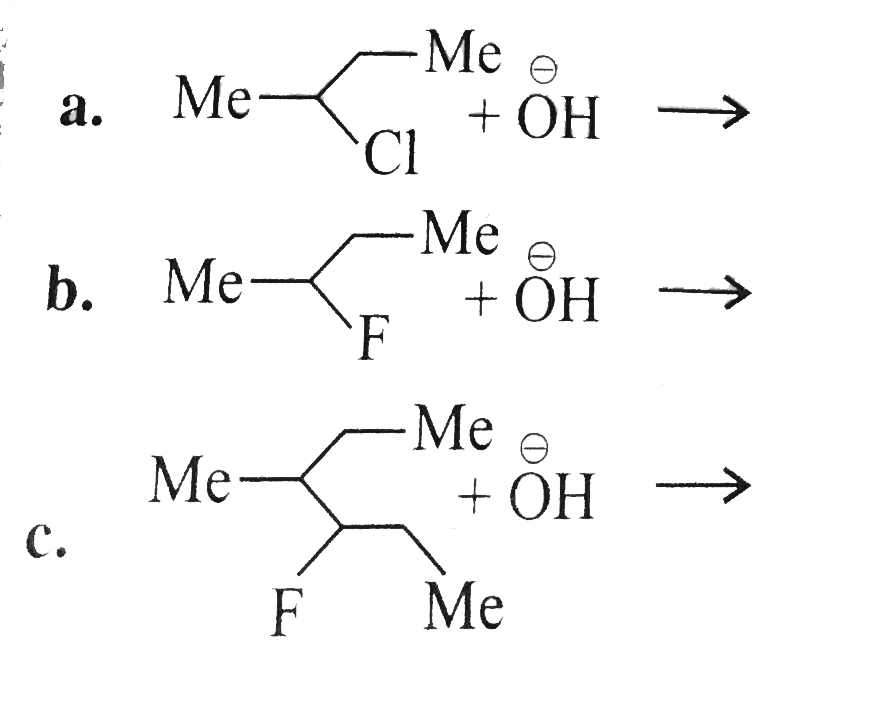
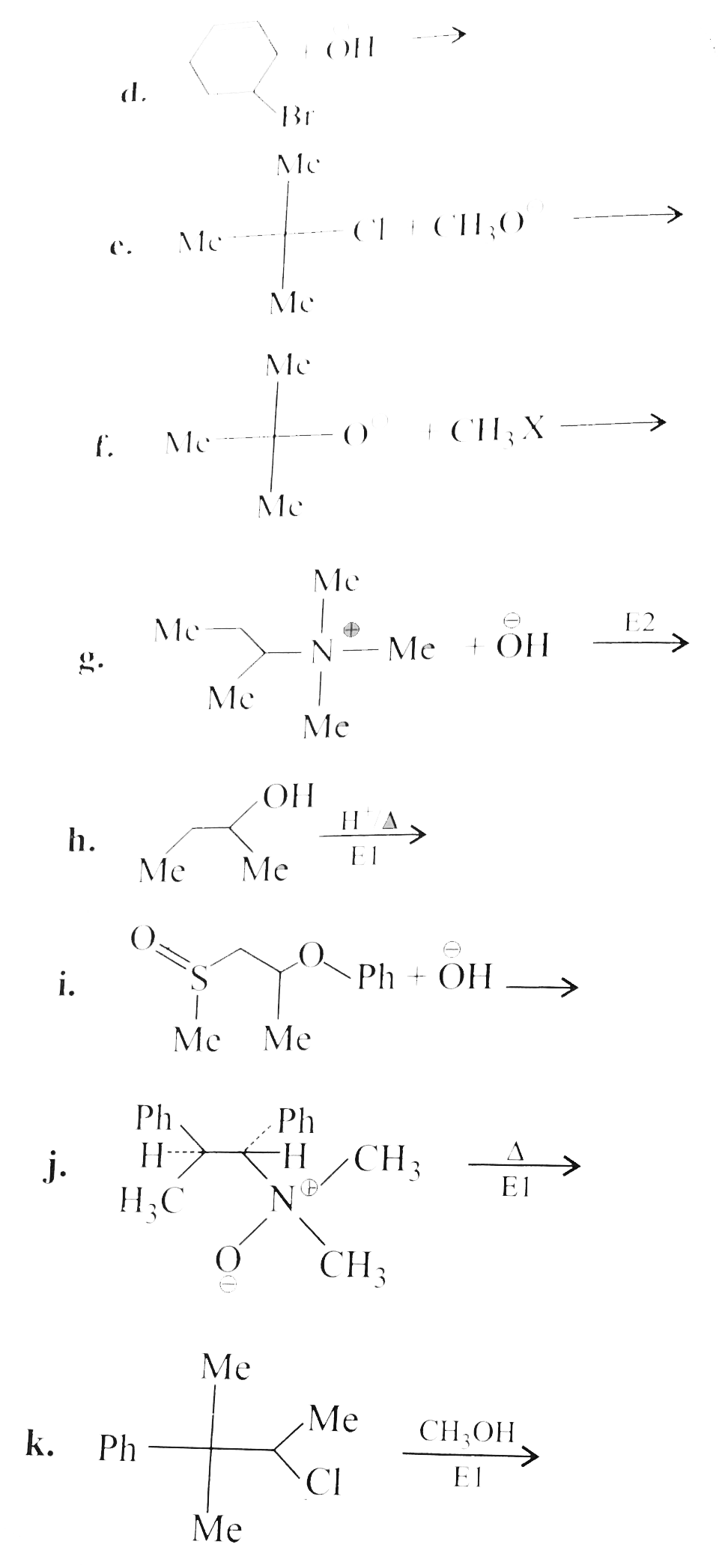
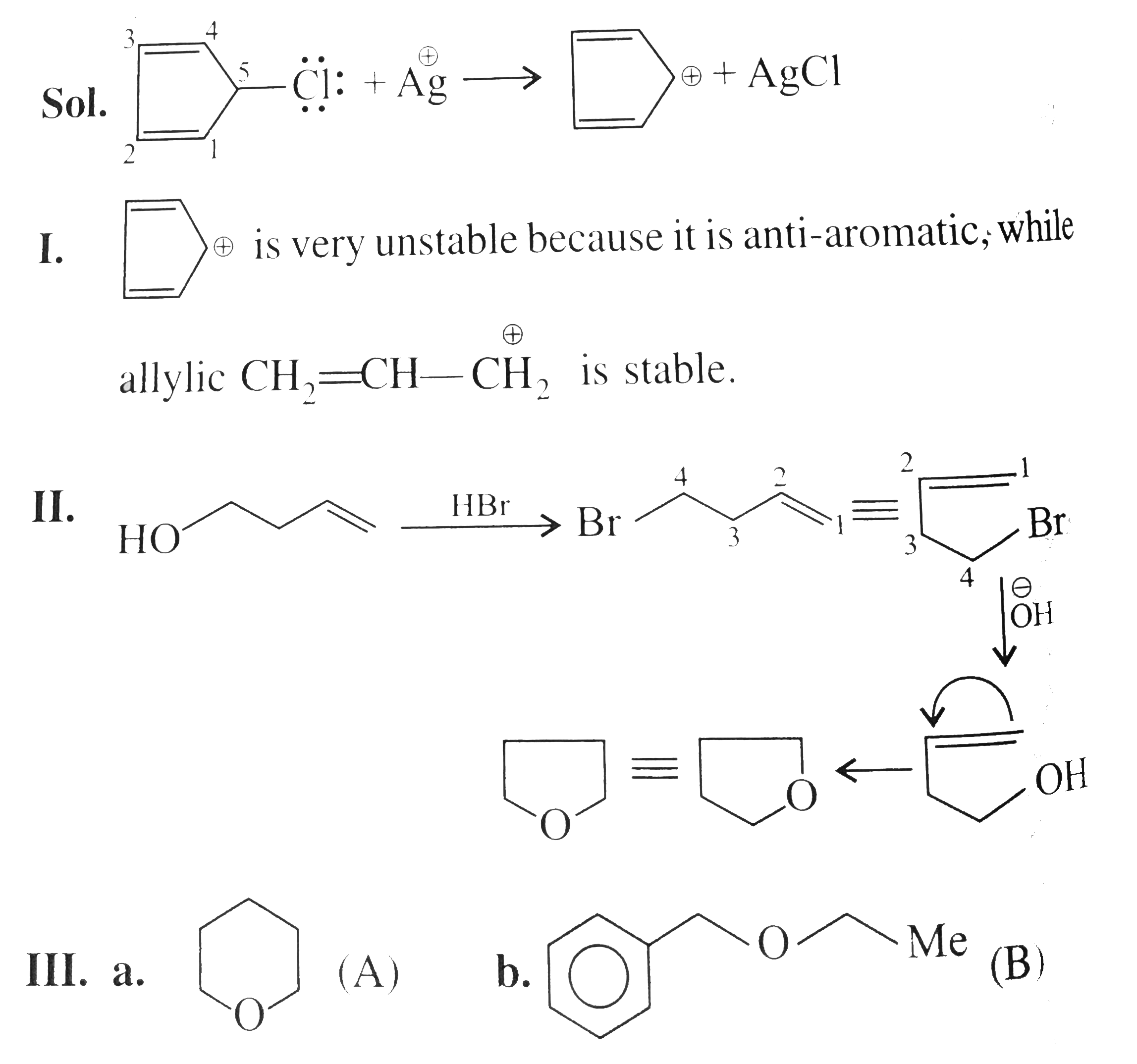
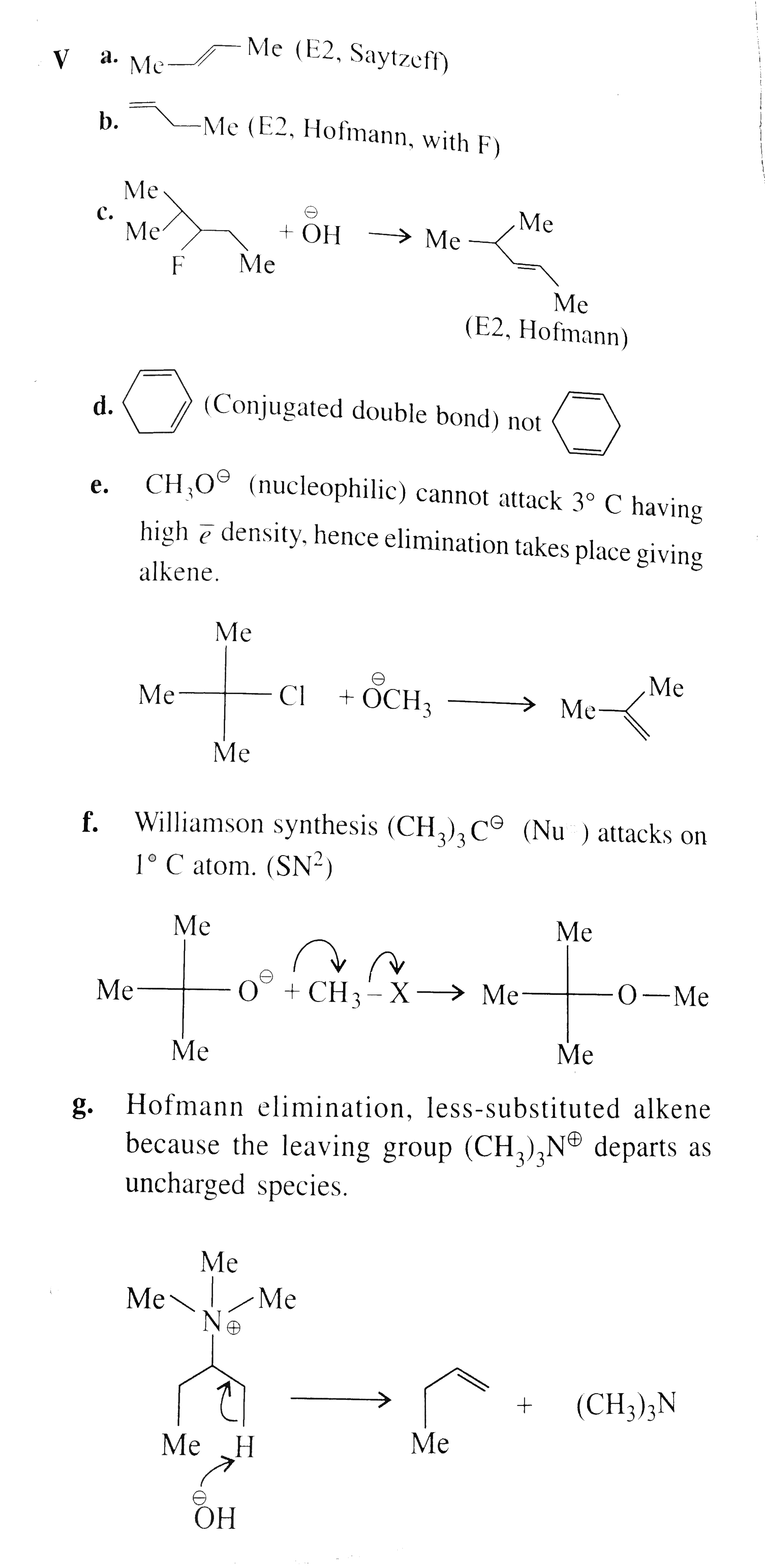
h. Saytzelf elimination (most stable alkene). The acid (H⊕) converts (overset(ᶱ)(O)H) grouop to a better leaving group group(H2O) and the heat promotes the elimination of the β−H atom form the carbonation ion intermedicate.
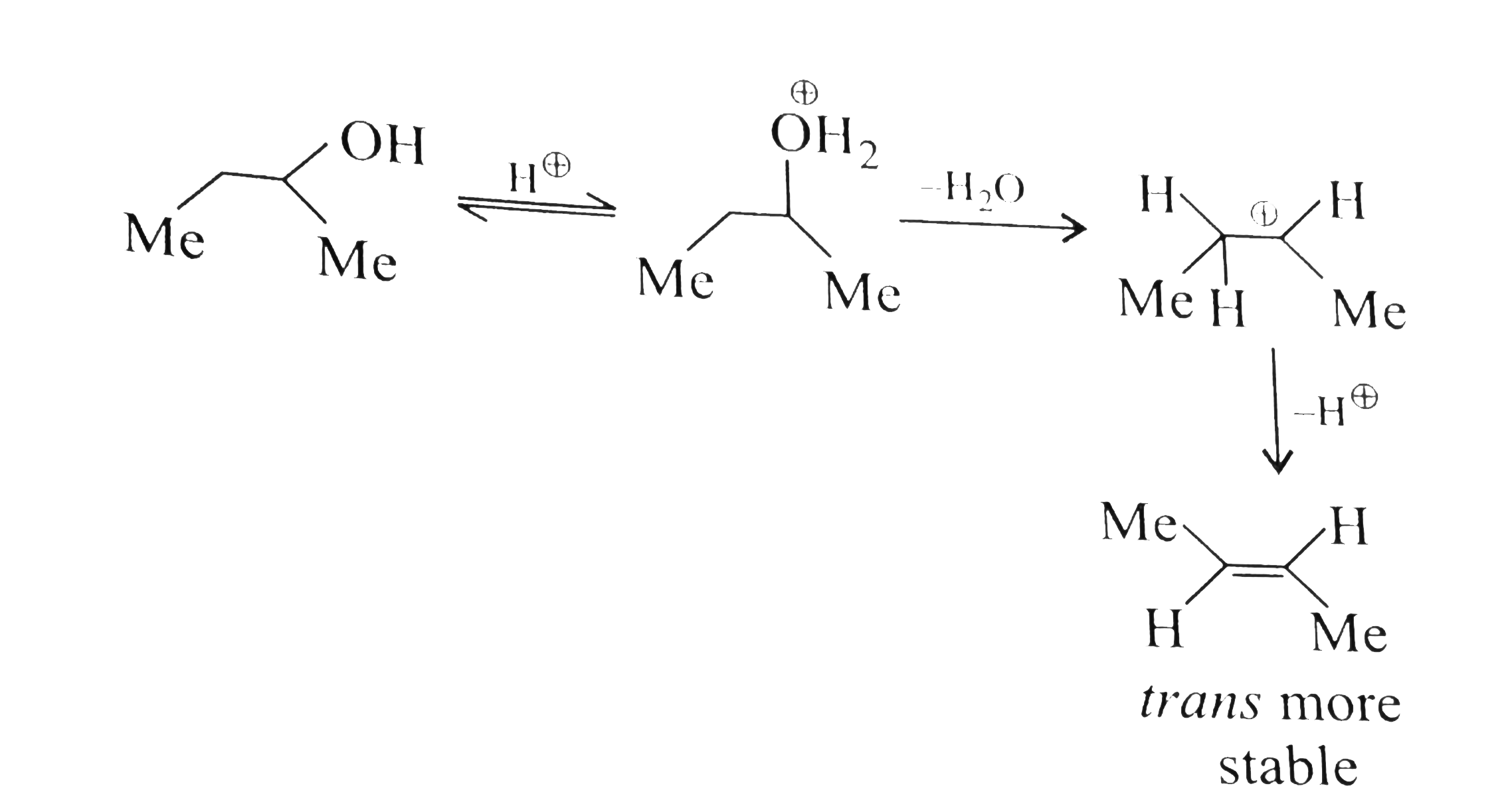
i. (S=O) group is EWG and will stablise carbanion formed in the first step (a necessary conditionof ElcB).
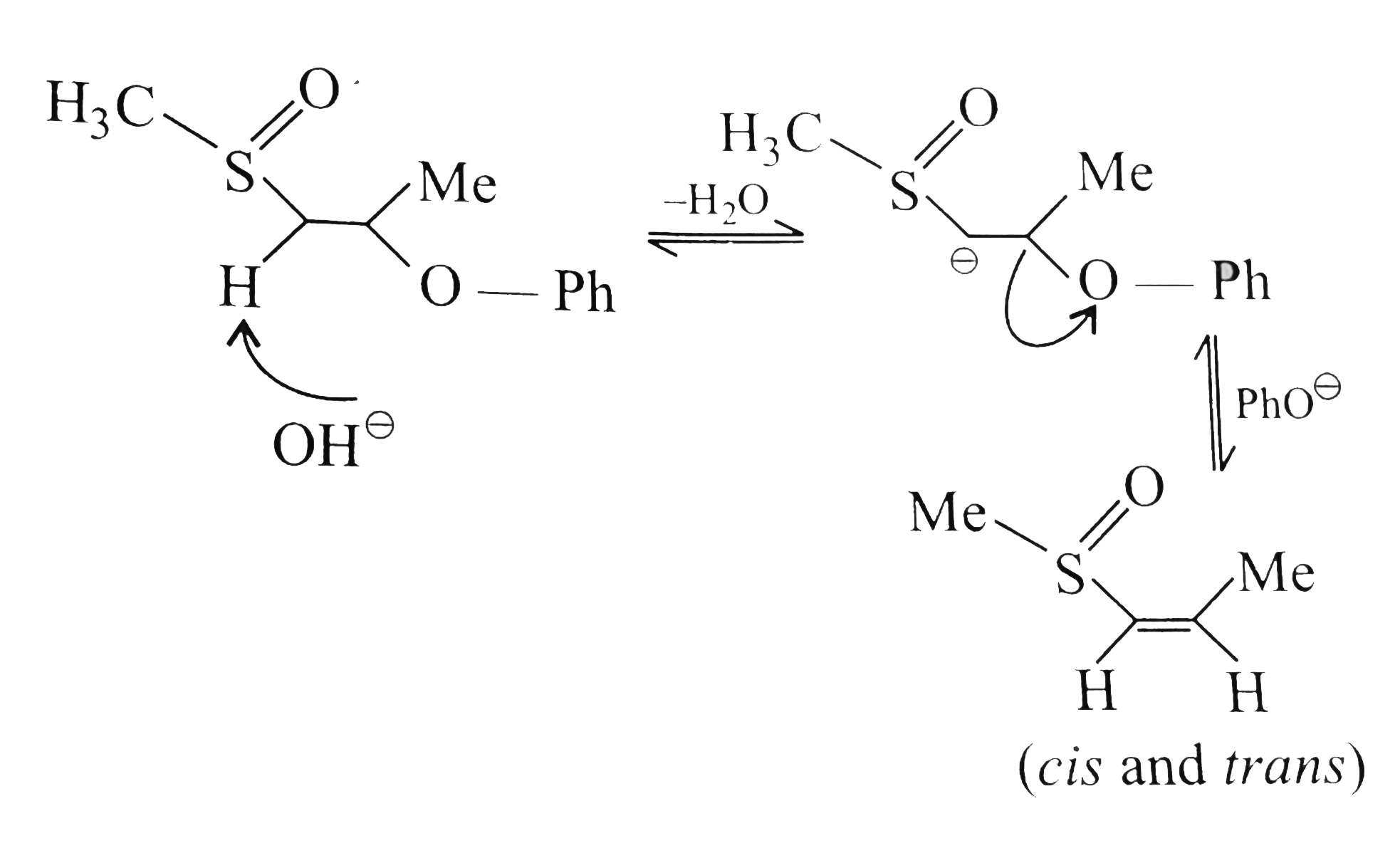
(ElcB is sterospecidic but not steroselevtive and hence both products are formed).
j. Cope reaction: ((CH3)2−⊕N−oᶱ)
Amine oxide will serve as the terminal base in this reaction and a cis-transtion state geometry will give the product.
Cope reacition is both stereospecific and steroselective.

k. El reaction involves the formation of carbanion intermediate. The rearrangement takes place via (1.2−Me) shift to from a more stable 3∘ benzylic carbonium ion.
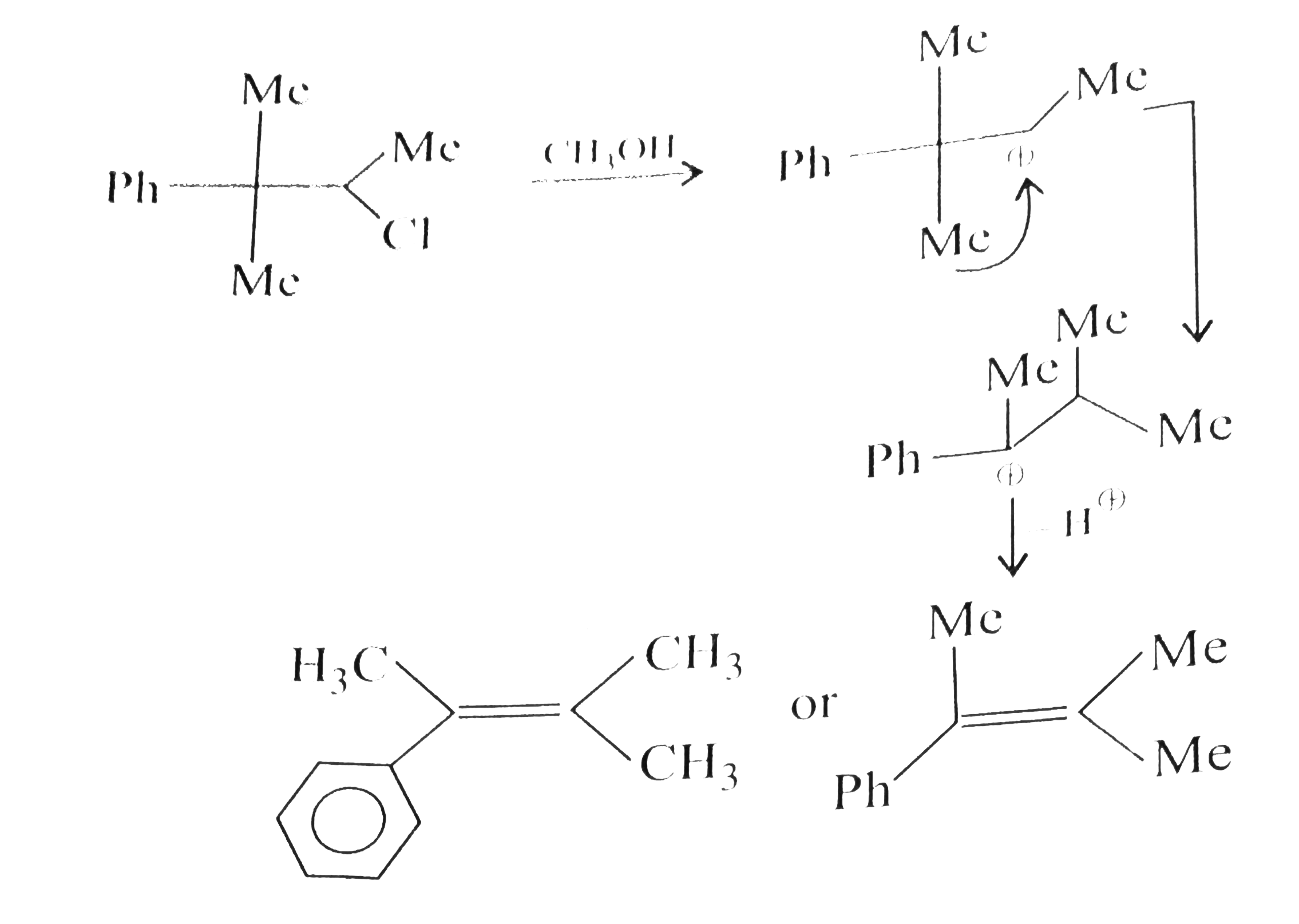
Topper's Solved these Questions
- BOOK - CENGAGE CHEMISTRYCHAPTER - AROMATIC COMPOUNDS AND ALKYL AND ARYL HALIDES EXERCISE - Solved Examples21videos
AROMATIC COMPOUNDS AND ALKYL AND ARYL HALIDES
- BOOK - CENGAGE CHEMISTRYCHAPTER - AROMATIC COMPOUNDS AND ALKYL AND ARYL HALIDES EXERCISE - Solved Problems37videos
AROMATIC COMPOUNDS AND ALKYL AND ARYL HALIDES
- BOOK - CENGAGE CHEMISTRYCHAPTER - APPENDIX INORGANIC VOLUME 2EXERCISE - Short Answer Type179videos
APPENDIX INORGANIC VOLUME 2
- BOOK - CENGAGE CHEMISTRYCHAPTER - BIOMOLECULESEXERCISE - Exercises Archives (Analytical And Descriptive)8videos
BIOMOLECULES
Similar Questions
Benzene, touene, xylene (o,m,p) and mesitylene dissolve in HBF4 to from salts. Expalin the order of basicity:
Mesitylene >m−Xylene>o− and p− Xylenen gt Toulene gt Benzene01:34View SolutionComplete the following reactions:
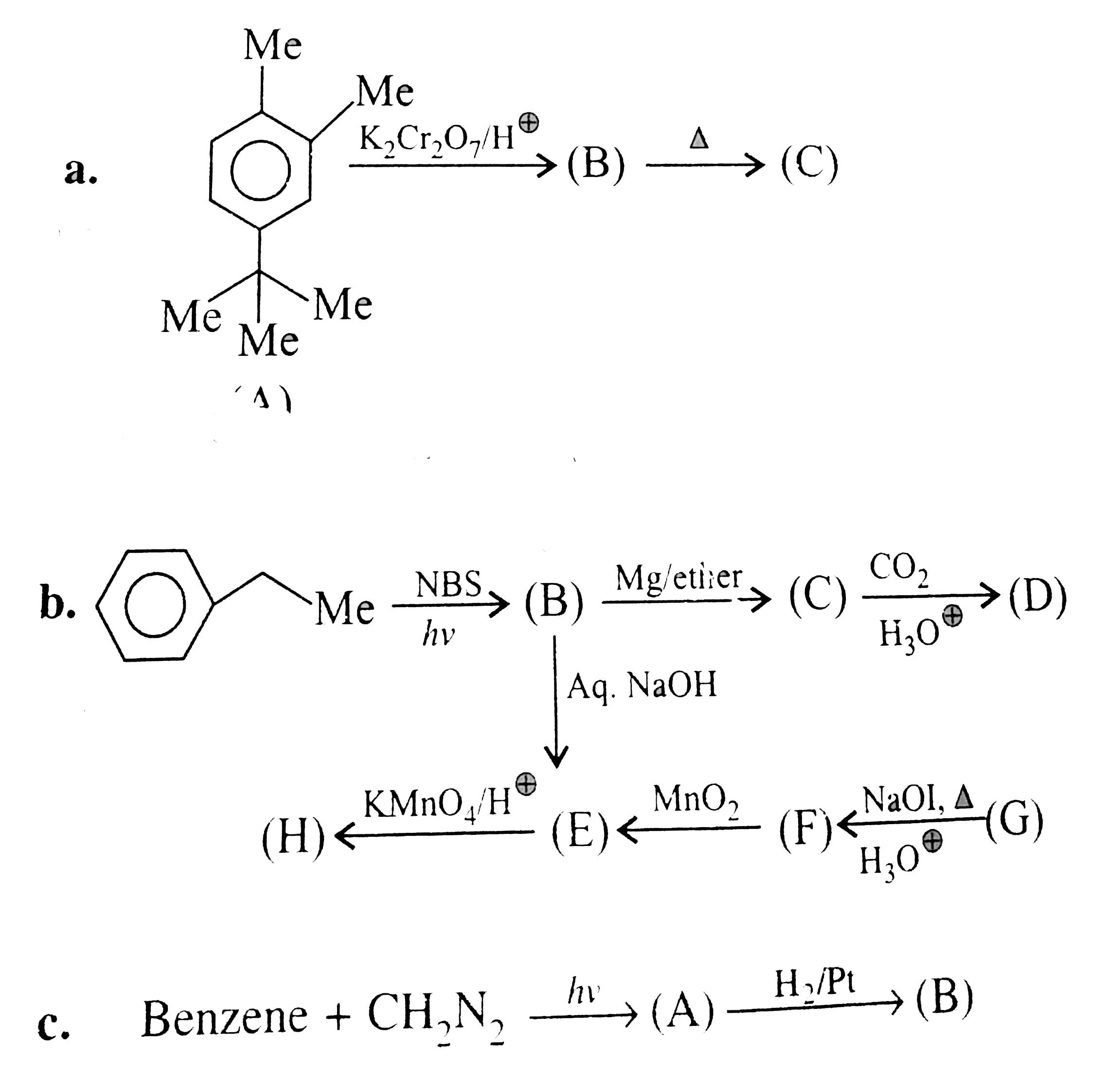 View Solution
View SolutionWhich metals are generally extracted by the electrolytic processes ? What positions these metals generally occupy in the periodic table?
01:18View SolutionWrite the structure of alanine at pH=2andpH=10.
03:33View Solution1^@ allylic halides are more reactive than 1^@ RX in SN^1 reaction. Allylic carbocation intermediate is stabilished by resonance.
04:43View SolutionSynthesise the following :
a. Butene to butanol and butan-2-ol
1-Chloro propane to pentanol and pentan-2-ol
c. Benzene to 3-(4-chorophyl propan-1-ol)
e. Ethyne to butanol
Propane to allyl alcohol
f. Propane to allyl acohol
g. Propane to propanol and propan-2-ol05:28View Solution1-chloro-2-propanal
03:48View SolutionStatement-1 : Propane on photochlorination gives 2-chlro propane as major product. Statement-2 : 2^(@) carbocation is more stable than 1^(@) carbocation.
05:54View Solution2-Chloro-2-methylpropane on reaction with NH3 gives major product
View SolutionGive chemical equations for following conversions:
(i) Propanal from allyl alcohol
 06:55View Solution
06:55View Solutionनिम्नलिखित परिवर्तन कैसे सम्पन्न किए जा सकते है?
2-मेथिल-1-प्रोपीन से 2-क्लोरो-2-मेथिल प्रोपेन05:01View SolutionHeating of 2-chloro-1-phenylbutane with EtOK/EtOH gives X as the major product. Reaction of X with Hg(PAc)_(2)//H_(2)O followed by gives Y as the major product. Y is :
03:23View SolutionA student prepared a pure sample of 1-chloro-2-(dimethylamino) propanol. After standing for several weeks in a sealed container he opened it and found it has mostly 2-chloro-1-(dimethylamino) propane. Resolve student's dilemma and explain what has happened.
03:01View SolutionCompound which can show stereisomerism (excluding conformations) (a) 2-Chloro propane (B)2-Chloro-3-methyl but -2-ene (C) 3-Ethyl pent-2-ene (D)1-Chloro but -1-ene
03:11View SolutionPrepare allyl chloride and allyl bromide from propane.
01:31View SolutionMatch the proper pairs :
[A][B](a)Cyclo hexyl chloride(e)Vinylic halide(b)4-chloro pent-2-ene(f)Benzylic halide(c)Chloro ethene(g)2∘ halide(d)1-chloro 2-phenyl methane(h)Allylic halide03:09View Solution

